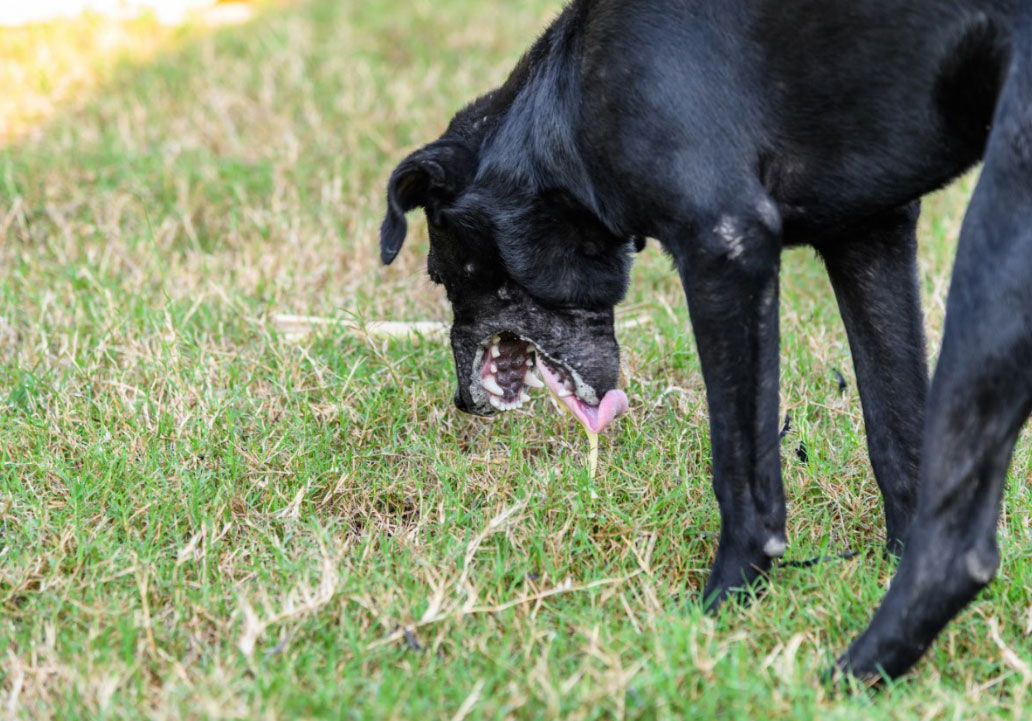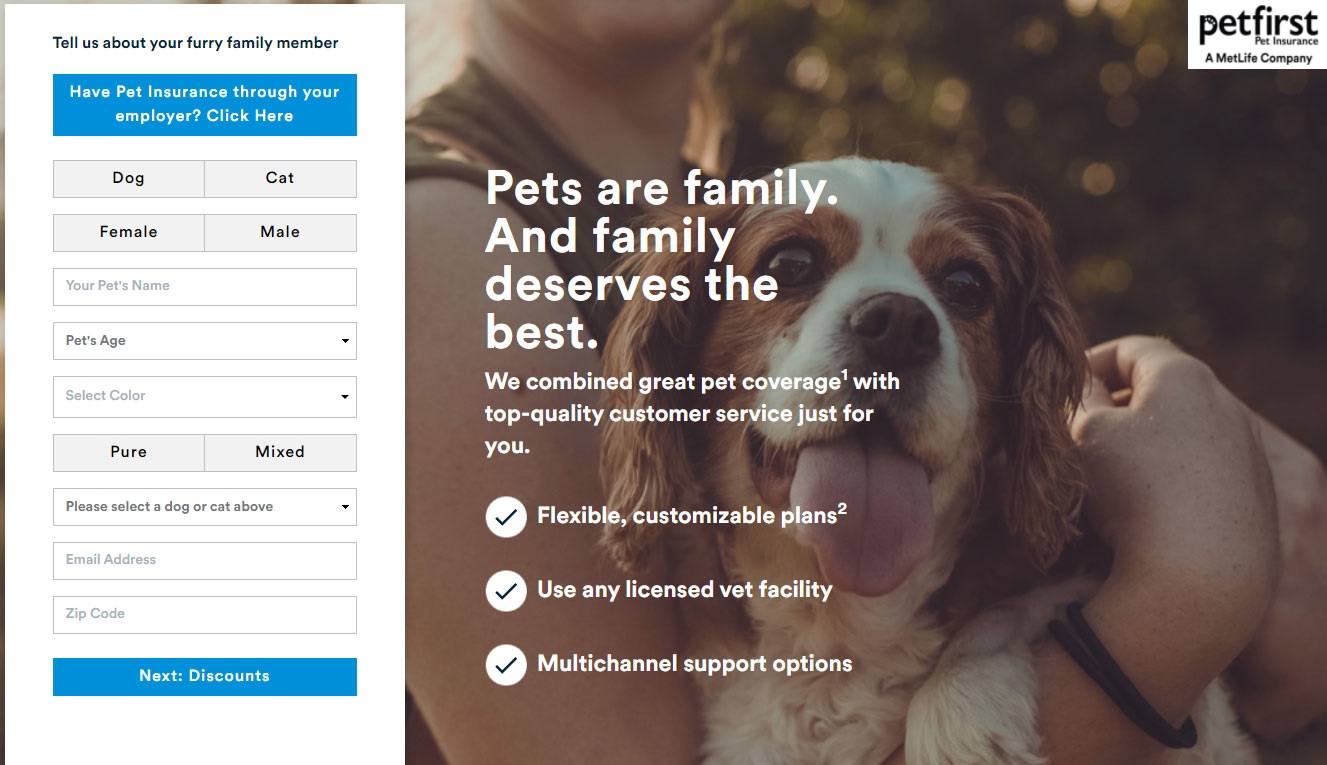Vomiting in dogs
Seeing your pet sick is never fun, and even though vomiting in dogs is relatively common, it can be a symptom of a more serious health problem and should not be ignored!
Parasitic or gastrointestinal problems, simple indigestion or bacterial infection, vomiting can have many causes, but also many consequences on the health of your companion. To avoid panicking over nothing, here is some information that will help you better understand vomiting in dogs.
What is vomiting in dogs?
Before getting into the heart of the matter, it is necessary to distinguish two phenomena that seem similar, but are nevertheless very different: vomiting and regurgitation. The result of these two actions is very similar and consists in the rejection of the dog's food through its mouth.
However, regurgitation occurs just after the food is taken and is done without any real contraction of the dog's gastric system. The animal does not make any effort to reject its food, but simply seems to spit it out (often because of a false route).
Vomiting can occur at any time and consists of the expulsion of food (digested or not) and/or bile. In the case of vomiting, the dog makes a gastric effort that can cause abdominal pain manifested by spasms.
Most of the time, vomiting allows the dog to eliminate toxic substances in its stomach after ingesting a food, a foreign body or a product that its body cannot tolerate.

What causes vomiting in dogs?
Vomiting in dogs can have many causes: you should not be alarmed for nothing, but do not ignore this event when it is repeated, prolonged or accompanied by other symptoms.
Food hygiene
The most common cause of vomiting in dogs is poor dietary hygiene, which consists of eating food that is not adapted to your dog's body. This type of vomiting is not serious in itself, because it is not related to a pathology requiring veterinary treatment. However, your pet's diet must be modified to provide him with nutrition that does not upset his stomach and meets all his physiological needs.
If your dog does not tolerate his diet, it may be worthwhile to consult a veterinarian who will tell you what diet to follow to eliminate vomiting. If your dog also suffers from skin problems (itching, pimples, red patches, dandruff, greasy hair, etc.), he may be allergic to the food you are feeding him. So, gradually switch to hypoallergenic kibbles which should allow you to observe a clear improvement after a few weeks.
Internal parasites
If your dog is not dewormed regularly and suddenly starts vomiting, it is likely that he is infested with worms. Worm infestation is an extremely common cause of vomiting, but also of diarrhea. In case of a heavy infestation, your dog may also show other symptoms (weight loss, lethargy, depression, etc.).
Gastroenteritis
Gastroenteritis can occur in many different situations and consists of an inflammation of the digestive system. It is a common disease in dogs, a species whose stomach is very sensitive to dietary changes. Gastroenteritis itself can have several causes (virus, sudden change of diet, ingestion of irritating food, bacteria, etc.). Generally, gastroenteritis is accompanied by various symptoms and not only by vomiting. The dog often suffers from intestinal spasms, diarrhea, abdominal pain, a more or less marked depression and, sometimes, fever.
Gastrointestinal obstruction
Many dogs are gluttons for food and will swallow anything they can get their hands on. Therefore, intestinal obstruction is a common condition in dogs, but it is no less of a serious threat. In this case, vomiting is usually accompanied by abdominal pain, abdominal dilation, diarrhea, excessive salivation, loss of appetite and weight loss. Beware, intestinal obstruction is an emergency! If you detect this type of symptoms in your dog, I recommend that you visit your veterinarian quickly.
Food poisoning
Dogs have specific nutritional needs and cannot consume the same foods as humans. Therefore, many dogs are regularly poisoned by chocolate, onions or raw potatoes distributed or left within reach by their owners. Voracious animals, such as Beagles and Labradors, also have a habit of pouncing on anything they come across and are likely to swallow toxic products. The same is true for young puppies, whose heightened curiosity can be a real source of danger. If your pet is prone to swallowing anything, or is still growing, keep it away from household or health hazards! The best way to limit the risk of food poisoning is to avoid any deviation in your dog's diet and, above all, not to give him your own food.
Medication
If your dog is on medication, it may cause vomiting, especially when it is anti-inflammatory. If so, find out about the side effects of your dog's medication by consulting the package insert or by calling your veterinarian or pharmacist directly. If your pet is not taking any treatment prescribed by a health professional, this cause can be ruled out.
Stress and anxiety
Vomiting can also be a symptom of emotional unhappiness or major stress in the dog. In the case of very brief stress, there is no need to worry too much if the vomiting is not accompanied by other symptoms and does not last once the disturbance (travel, fireworks...) has passed. On the other hand, if your dog is particularly sensitive and is regularly confronted with stressful or anxiety-provoking situations, you should consider giving him a treatment to relieve his discomfort and his symptoms.
Non-gastric pathologies
Vomiting can also occur in dogs with certain diseases that are not directly related to their digestive system. A dog that vomits frequently should be taken to the veterinarian to make sure that they do not have a more serious pathology. Liver or kidney failure, pyometra, certain nervous system disorders and many other conditions can cause vomiting.

What should I do if my dog vomits?
If you notice your pet vomiting, it is recommended that you begin by putting him on a diet (while leaving plenty of clean water available). This short fast will allow his gastrointestinal system to rest and remove any temporary irritations. This short diet should not last more than 24 hours, after which it is necessary to consult a veterinarian if the vomiting continues and/or other symptoms appear.
I also recommend that you give your pet time to rest after vomiting. Limit walking and playing, and just cuddle your pet until it recovers and is fully recovered. In the case of vomiting accompanied by other symptoms (dropping, diarrhea, fever or unusual behavior) the best thing to do is to consult a veterinarian quickly.
Some vomiting is indeed a real alarm bell and requires urgent attention! This is particularly the case when a dog has been poisoned or suffers from intestinal obstruction: every hour lost darkens his vital prognosis.
How to prevent vomiting in dogs?
Ideally, avoid any sudden changes in your dog's diet, as changes in diet tend to cause significant stomach irritation. To avoid gastrointestinal inflammation, it is advisable to select a quality diet adapted to your dog's needs.
The high-end industrial kibbles available on the dog food market are specifically designed to meet the nutritional needs of dogs without harming their bodies. If your pet has a weak stomach, it's best to avoid the BARF diet and homemade rations, unless you know exactly what you're doing (only highly digestible foods, no irritants or allergens, etc.).
Deworming your dog once or twice a year if he lives indoors, and twice or three times a year if he spends more time outdoors, is also an excellent solution to fight against internal parasites that can cause vomiting. Finally, always keep your toxic products (medication, household products...) in a place that is inaccessible to your pet and avoid giving him food designed for humans (chocolate, onion, raw potato...).
Vomiting in dogs is usually not serious, especially when it does not last and is not accompanied by other symptoms. However, it can be caused by more serious and relatively widespread pathologies, such as diabetes or intestinal obstruction.
When in doubt, don't wait to visit your veterinarian: your pet's life may depend on your responsiveness!
Loving and educating your pet also means protecting it against the hazards of life. This is why we strongly recommend that you take out health insurance as soon as possible. This will save you astronomical veterinary fees in case of accident or illness.


